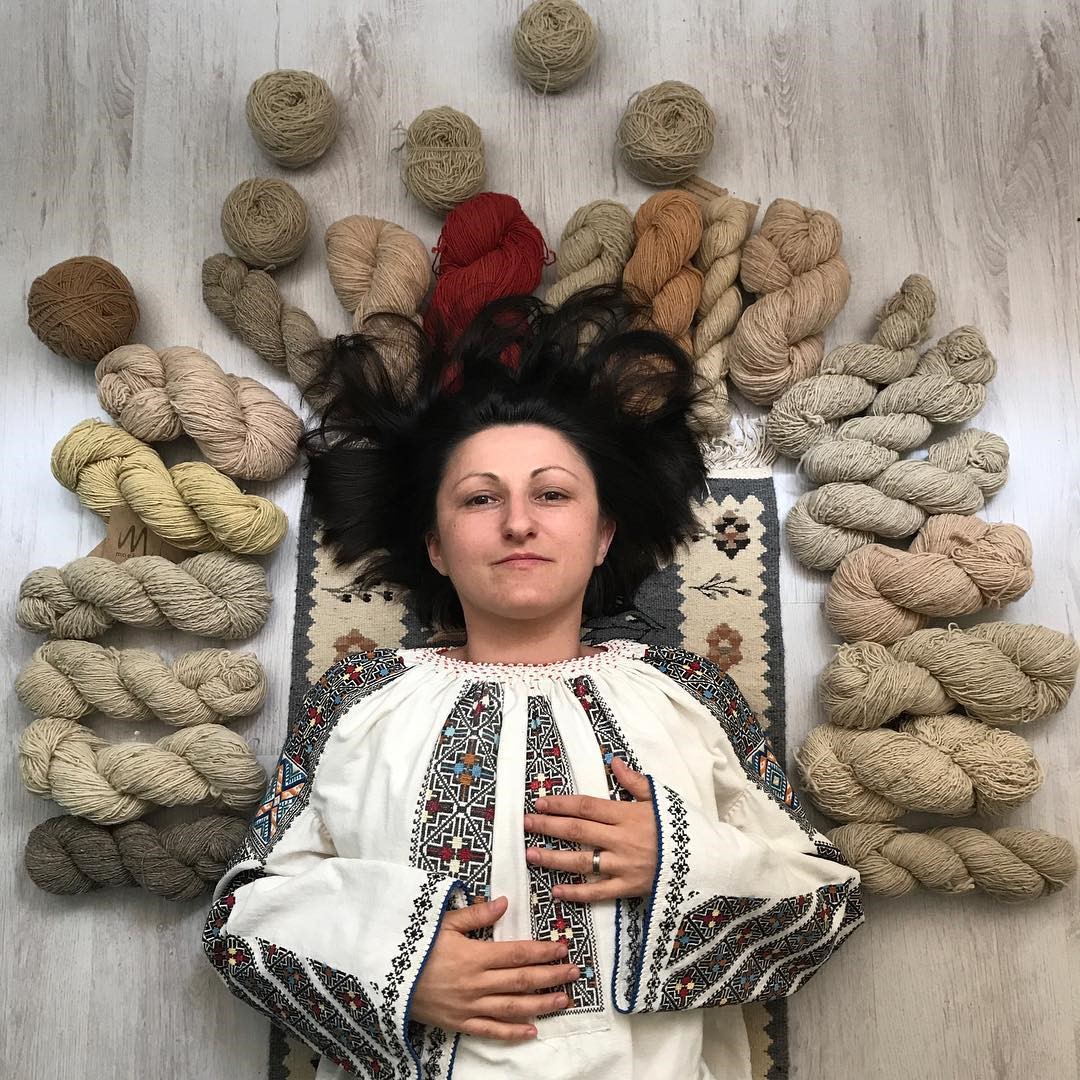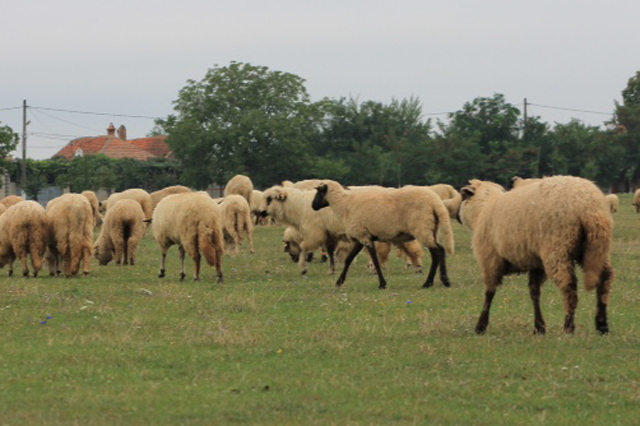 Ioana, the co-founder of Moeke Yarn http://moeke-yarns.com/ |
Encounter with Moeke Yarn
when I met ‘Moeke yarn’, I finally found the truly environmentally and
animal-friendly wool I’d been looking for.
Ioana, the co-founder of Moeke Yarn, is a Romanian who currently lives in the Netherlands.
In Romania, sheep farming is a representative industry, which has persisted
from before the Roman Empire. This traditional method has been used by
the Romanians even after the Industrial revolution.
However, producing wool yarn from the fleece has been highly modernized.
Ioana cooperated in spinning factories, which are not common even in Romania,
to help them make companies that produce yarn in the traditional Romanian
way.

Sheep tails are naturally long
By the way, did you know that the tails of lambs are actually long?
When the tails, which are as furry as their bodies, are long, the excrement
will stick to them, and that can be fertile ground for maggots. In order
to prevent that, most of the sheep in this world either have their tails
clipped or are mulesed without anesthesia. However, that does not happen
in Romania because its climate really suits sheep farming. So, the Romanian
sheep can keep their tails long, as they are.
The Romanian traditional spinning factory
100% of the vegetation from the fleece must be removed in order to use
the industrial spinning machine that can mass produce. In the regular spinning
factory this is done by carbonization with dilute sulfuric acid.
The carbonization can lead to an environmental problem, but the factory
can spin the fine and consistent wool yarn that is familiar to us.
On the other hand, at the traditional Romanian yarn factory, they don’t
carbonize. They simply wash the fleece with soap, so some vegetation usually
remains on the fleece.
They spin the fleece into wool yarn using a traditional machine.
The left over vagetstion on ami-tsumuli products is removed by hand in
our atelier.
Additionally, although electric razors are commonly used around the world,
the Romanian shepherds still use big large scissors to trim sheep, keeping
the tradition from ancient times.